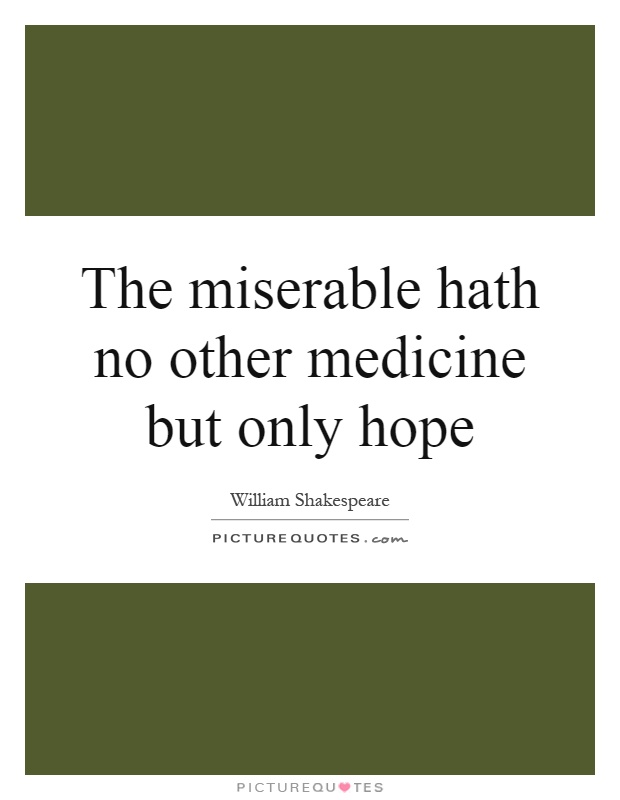The miserable hath no other medicine but only hope

The miserable hath no other medicine but only hope
In the works of William Shakespeare, the theme of hope is a recurring motif that often serves as a source of solace for characters who find themselves in desperate or miserable situations. One of the most famous quotes that encapsulates this idea is “The miserable hath no other medicine but only hope” from the play Measure for Measure.In Measure for Measure, hope is portrayed as a powerful force that can provide comfort and strength in times of adversity. The quote suggests that when all other remedies fail, hope is the only thing that can sustain a person through their suffering. This sentiment is echoed throughout the play, as characters such as Isabella, Claudio, and Angelo all grapple with their own personal struggles and turn to hope as a means of coping with their circumstances.
Isabella, for example, finds herself in a hopeless situation when her brother Claudio is sentenced to death for impregnating his fiancée out of wedlock. Despite her initial despair, Isabella clings to the hope that she can persuade Angelo, the strict deputy ruler, to spare her brother’s life. This hope gives her the courage to confront Angelo and plead for mercy, even in the face of his cruel and unyielding nature.
Similarly, Claudio himself finds solace in hope as he awaits his impending execution. Despite the grim reality of his situation, Claudio maintains a sense of optimism that he will somehow be saved from his fate. This hope sustains him through his darkest hours and ultimately leads to his eventual reprieve.












 Friendship Quotes
Friendship Quotes Love Quotes
Love Quotes Life Quotes
Life Quotes Funny Quotes
Funny Quotes Motivational Quotes
Motivational Quotes Inspirational Quotes
Inspirational Quotes